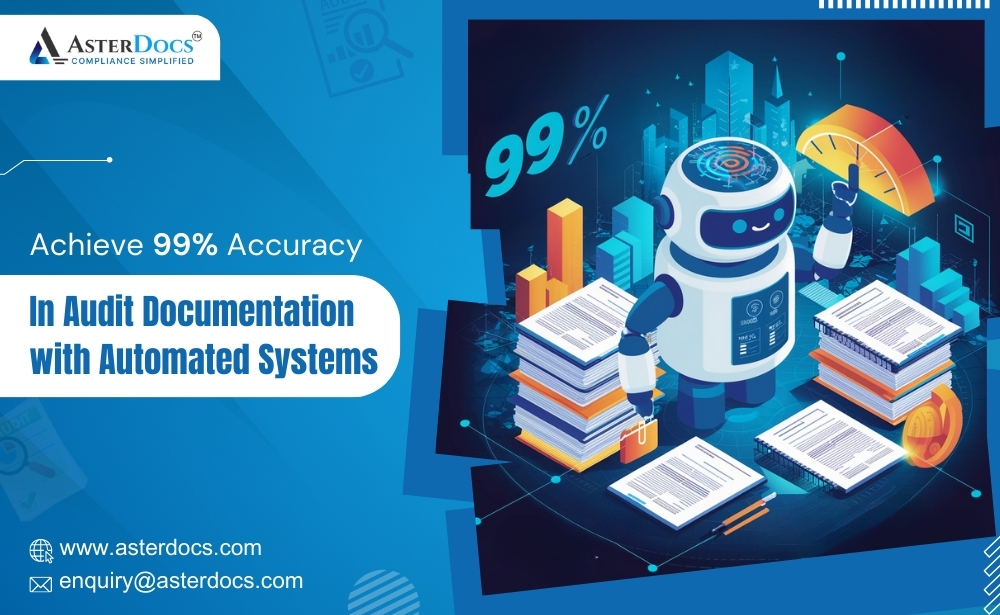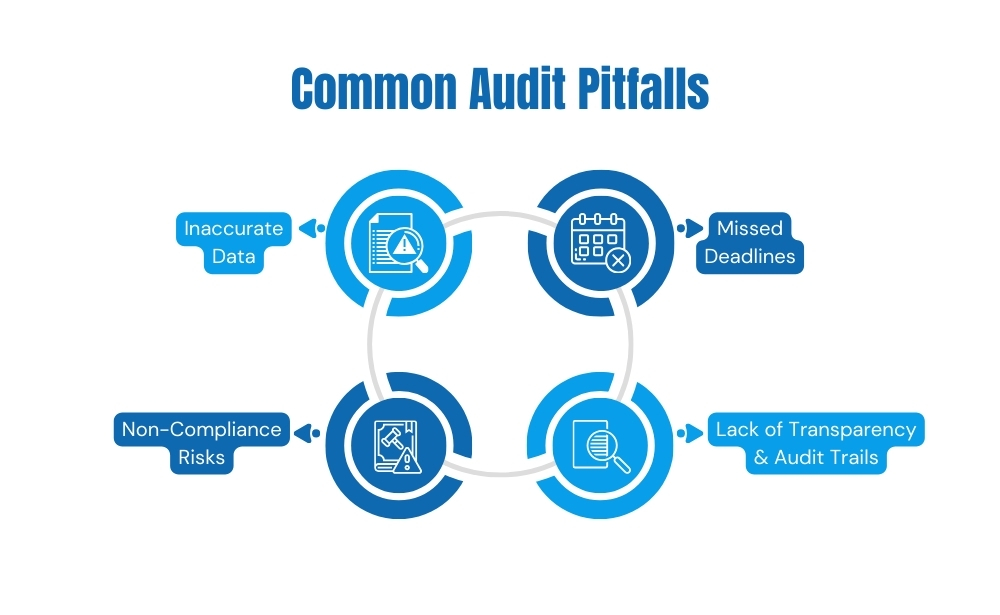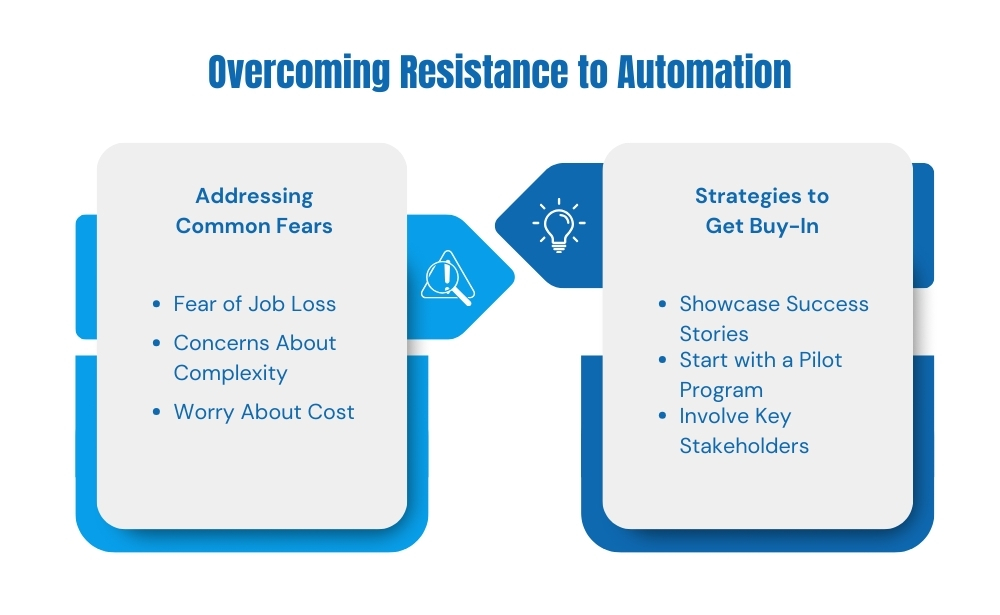Audits can be a daunting process for any organization. The sheer volume of data to be collected, analyzed, and documented, coupled with the pressure of meeting strict deadlines, often leaves teams overwhelmed. Traditional audit processes, which rely heavily on manual tasks, are not only time-consuming but also prone to errors, leading to increased stress and a higher risk of non-compliance. But there’s a better way—automated compliance management.
Let’s explore how this innovative approach can alleviate the stress of audits and ensure smoother, more efficient compliance management.
Common Audit Pitfalls and How Automation Solves Them
When it comes to audits, even small mistakes can have significant consequences. Here are some common audit pitfalls and how automated compliance management effectively addresses them:
- Inaccurate Data Collection and Documentation: Manual data entry and documentation are prone to human error, leading to inconsistencies and inaccuracies. Automated systems, on the other hand, can automatically collect and organize data with precision, minimizing the risk of errors.
- Missed Deadlines and Non-Compliance Risks: Traditional audit processes often involve juggling multiple tasks and deadlines, increasing the likelihood of missing crucial compliance deadlines. Automation helps by providing real-time alerts and reminders, ensuring that all compliance-related tasks are completed on time.
- Lack of Transparency and Audit Trails: Without a clear audit trail, it’s challenging to track compliance activities and demonstrate adherence to regulations. Automated systems create comprehensive, searchable audit trails, providing full visibility into all compliance actions and making it easier to respond to audit inquiries.
The Role of Automated Compliance Management in Different Industries
The benefits extend across various industries, each with its own unique set of regulations and challenges.
Here’s how automation plays a vital role in specific sectors:
- Food & Beverage (F&B): In the F&B industry, maintaining high standards of food safety and hygiene is critical. Automated compliance management helps companies track and document every step of the production process, ensuring that all safety protocols are followed and recorded.
- Nutraceuticals: The nutraceutical industry is highly regulated, with strict guidelines for product labeling, ingredient sourcing, and manufacturing practices. Automation helps nutraceutical companies manage compliance documentation, conduct regular audits, and stay updated with regulatory changes.
- Dietary Supplement Business: Dietary supplement businesses must adhere to stringent regulations concerning product quality and safety. Automation streamlines the process of tracking ingredients, conducting quality checks, and maintaining compliance records, reducing the risk of non-compliance.
Overcoming Resistance to Automation
Despite the clear advantages, some organizations may resist adopting automation in compliance management due to misconceptions or fear of change.
Here’s how to address these concerns and encourage buy-in from stakeholders:
- Addressing Common Fears and Misconceptions:
- Fear of Job Loss: Assure employees that automation is not about replacing jobs but enhancing them. Automation reduces repetitive tasks, allowing staff to focus on more strategic and meaningful work.
- Concerns About Complexity: Emphasize that modern automated systems are user-friendly and can be integrated seamlessly into existing processes.
- Worry About Cost: Highlight the long-term cost savings of automation, such as reduced audit penalties, increased efficiency, and fewer errors.
- Strategies to Get Buy-In from Stakeholders:
- Showcase Success Stories: Present case studies of organizations that have successfully implemented automated compliance management, emphasizing the positive outcomes.
- Start with a Pilot Program: Propose a pilot program to demonstrate the effectiveness of automation on a smaller scale before a full rollout.
- Involve Key Stakeholders: Engage key stakeholders in the decision-making process and provide training to ensure they are comfortable with the new system.
Future Trends in Compliance Management
As technology continues to evolve, so does the future of compliance management. Here are some trends to watch:
- The Rise of AI and Machine Learning in Audits: AI and machine learning are increasingly being integrated into compliance management systems. These technologies can analyze large datasets, identify patterns, and predict potential compliance risks, making audits more proactive and data-driven.
- Predictions for the Future of Compliance and Auditing:
- Increased Automation: The trend toward automation will continue to grow, with more businesses adopting automated compliance management to reduce manual workloads and enhance accuracy.
- Greater Emphasis on Data Security: As data breaches become more common, compliance management systems will prioritize data security, ensuring that sensitive information is protected at all times.
- Regulatory Adaptability: Automated systems will become more adaptable to changing regulations, allowing businesses to stay compliant with minimal disruption.
Conclusion
Transitioning to automated compliance management is a significant step toward stress-free audits and more efficient compliance processes. By addressing common audit pitfalls, adapting to industry-specific needs, and overcoming resistance to change, automation can transform the way businesses approach compliance.
If you’re ready to embrace the future of compliance management, consider exploring AsterDocs—a leading solution designed to streamline your compliance processes and ensure your audits are stress-free. Take the first step towards automation today and experience the benefits for yourself.















